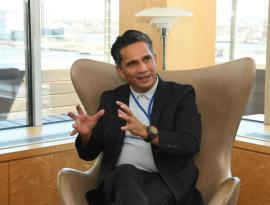Meningitis Outbreak: 60 die in Kebbi, as MSF warns 80 per cent of patients may die
As the number of cases and deaths from meningitis outbreak increase in Nigeria, 60 deaths have been recorded in Kebbi State.
Tthe Médecins Sans Frontières (MSF)/Doctors Without Borders has warned that the trend will continue unless the authorities put in place mass vaccination campaigns and other prevention measures.
The MSF expressed its concern through a statement by its Field Communications Manager, Teresa Krug.
Ms Krug said meningitis has been spreading rapidly across North-west Nigeria, mainly in Kebbi and Sokoto states, making healthcare workers face a race against time.
She said in Kebbi State, the MSF witnessed the biggest surge in admissions of patients with meningitis across the three different local government areas (LGAs) where it is present – Gwandu, Jega and Aliero. She said the teams have admitted over 500 patients with more than 60 of them dead.
The Nigeria Centre for Disease Control and Prevention (NCDC) said on Thursday that 74 persons had died from the meningitis outbreak in the country, with cases reported in 21 states and Abuja, the Nigerian capital.
The NCDC said in recent weeks, Kebbi, Katsina, and Sokoto states bore the brunt of the outbreak.
The Head of Corporate Communication at the NCDC, Sani Datti, said the centre has dispatched Rapid Response Teams (RRTs) to the three northwestern states to address the rise in suspected cases and deaths.
NCDC said that in total for 2025, it has recorded 807 suspected cases across 21 states and Abuja.
“As of 26 March 2025, a total of 807 suspected cases and 74 deaths have been reported across 21 states and the Federal Capital Territory (FCT), with a case fatality rate (CFR) of 9.2 per cent,” Mr Datti said.
The affected states include Kebbi, Katsina, Sokoto, Jigawa, Yobe, Gombe, Adamawa, Borno, Ebonyi, Oyo, Bauchi, Ondo, Kaduna, Osun, Akwa Ibom, Anambra, Bayelsa, Benue, Ekiti, Niger, Plateau and the FCT.
The NCDC further noted that sample collection rates in the hardest-hit states are relatively low, necessitating urgent intervention to bolster surveillance and diagnosis.
On Friday, the MFS said the situation is alarming, with more patients admitted to health facilities in Kebbi and Sokoto states.
“The situation is alarming. Meningitis kills quickly if someone does not come to the hospital early enough,” said MSF medical doctor Bukar Galtimari, currently based in Kebbi State, the hardest-hit state in Nigeria.
“You see a mother come in with two or three kids affected, and due to the nature of the disease and how quickly it spreads, the threat to their lives is very real.
“The patients we see are suffering from high fever, stiff neck, severe headache, nausea, vomiting, seizures, and sensitivity to light.
“Local and federal authorities should do everything they can to speed up their vaccination efforts immediately, ensuring enough doses are available for all affected states. This is the only way to prevent people from dying.” the MSF quoted Mr Galtimari, a medical doctor, while highlighting that meningitis is a preventable disease with a vaccine.
The statement added that in Sokoto State, which borders Kebbi State, MSF teams were working to support the local health system in terms of case management and case-finding to increase the epidemiological capacity in vulnerable communities.
Both Sokoto and Kebbi states are planning to start, support and manage a mass vaccination campaign in collaboration with each state’s Ministry of Health in some areas as early as the beginning of April.
The statement added that in North-west Nigeria, MSF medical teams have started responding to the increasing needs by treating hundreds of patients, supporting health facilities in the provision of care, and ensuring early access to adequate treatment and healthcare. It is also supplying hospitals with essential drugs and providing training for medical staff.
“Meningitis – especially the Neisseria meningitis present in Nigeria – is a very lethal disease if left untreated. It is estimated that up to 80 per cent of patients may die without early access to treatment. Access to timely care is, therefore, key. But above all, vaccination plays a pivotal role in preventing the emergence of new cases and spread of disease, consequently saving many lives.
“MSF is sending other emergency teams in the wider northern region of Nigeria to assess the situation as more suspected or confirmed cases are being reported across numerous states in Northern Nigeria. MSF is supporting the healthcare system and is ready to scale up”, the statement stated.
Meningitis is a serious medical condition that occurs when the protective membranes covering the brain and spinal cord, known as meninges, become inflamed.
This inflammation can result from bacterial, viral, fungal, or parasitic infections, as well as non-infectious causes like certain medications or autoimmune disorders.
The severity of meningitis largely depends on its cause, with bacterial meningitis being the most dangerous and requiring immediate medical intervention.
Viral meningitis, while more common, is usually less severe, whereas fungal and parasitic meningitis are rare and typically affect individuals with weakened immune systems.
The symptoms of meningitis can include a severe headache, stiff neck, fever, nausea, vomiting, sensitivity to light, and confusion.
In severe cases, seizures and loss of consciousness may occur. Infants with meningitis may display signs such as irritability, difficulty feeding, and a bulging soft spot on the head.











